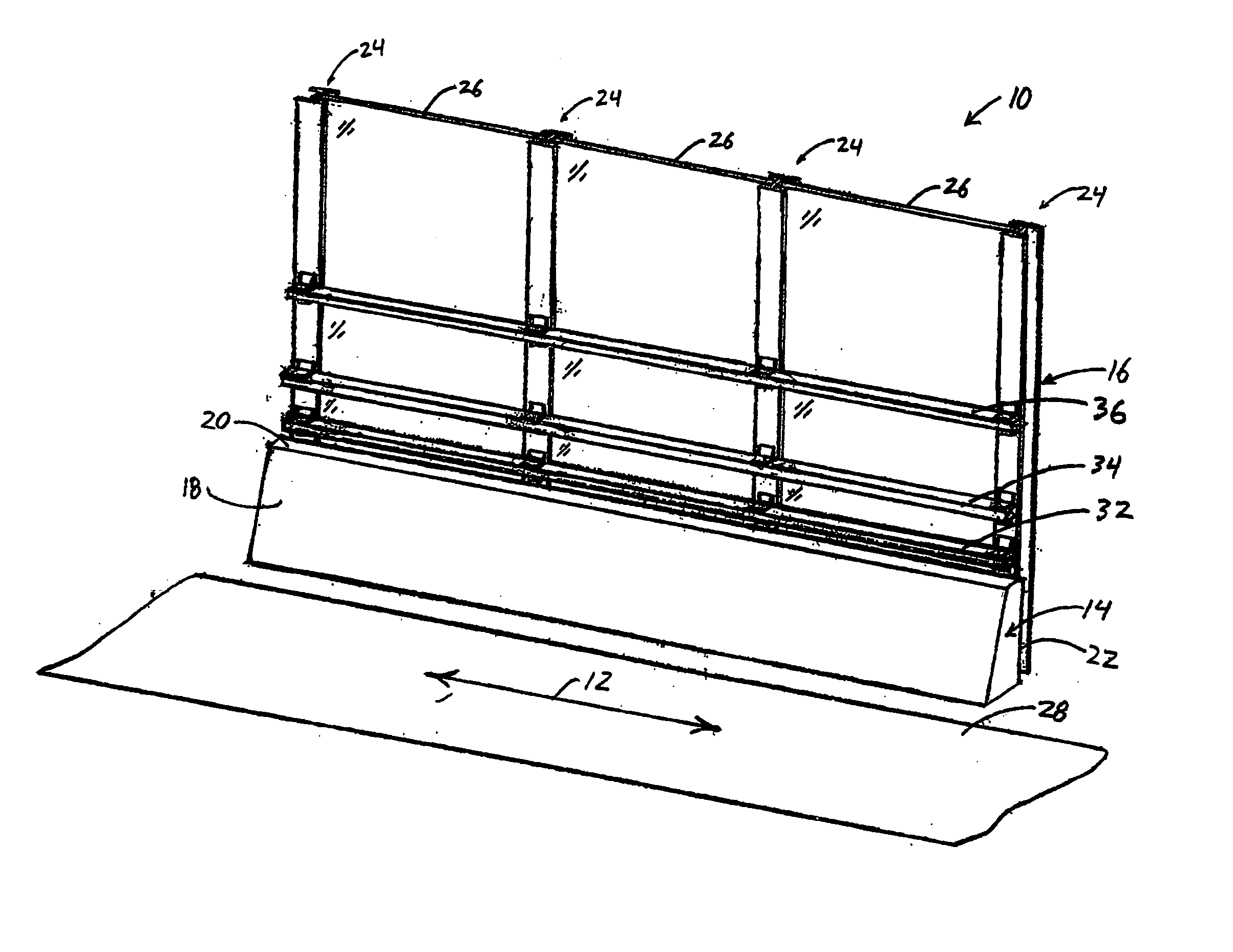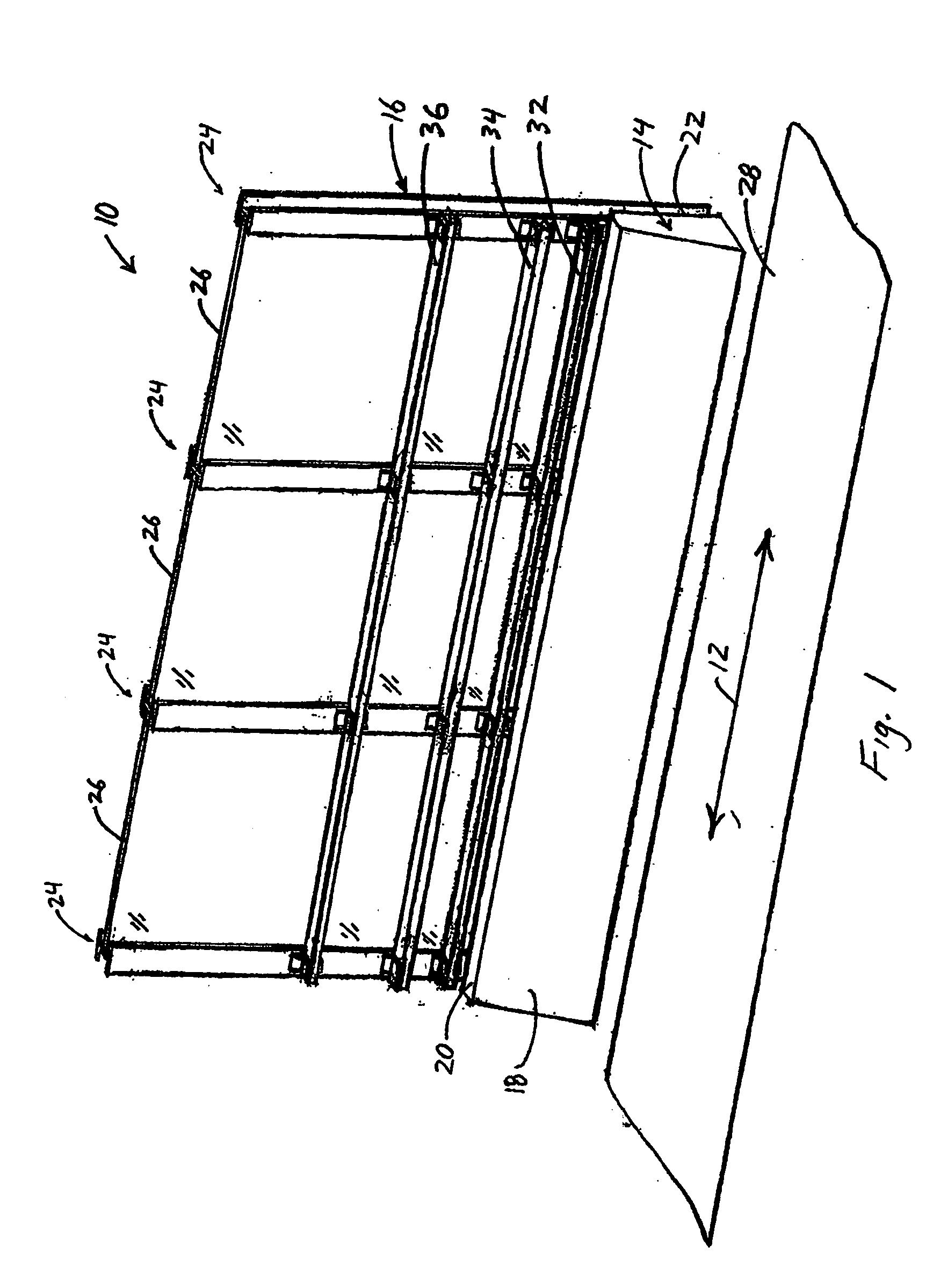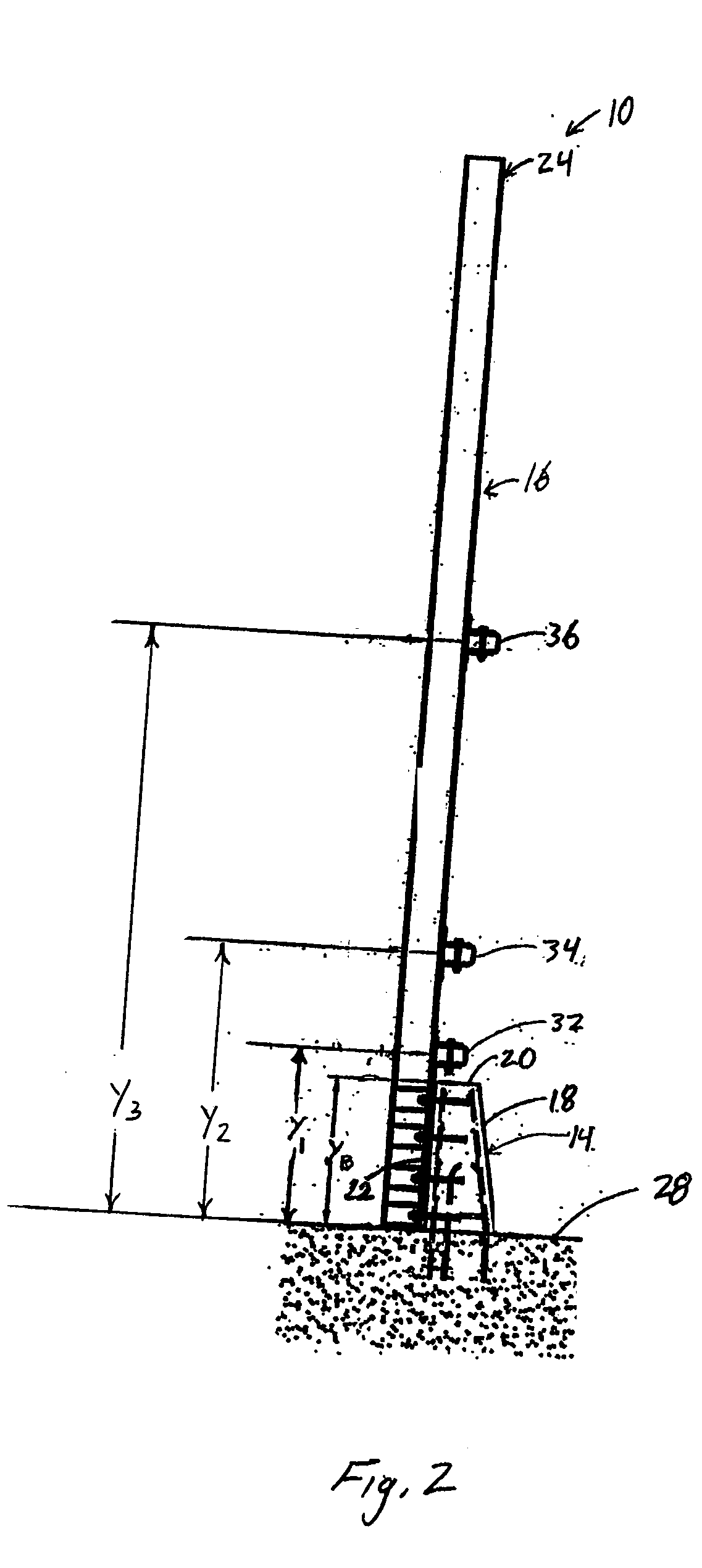Traffic noise barrier system
a technology of noise barrier and attachment, which is applied in the direction of roadway safety arrangements, roads, construction, etc., can solve the problems of no guidance for the evaluation of attachments on or near these barriers, and the walls of noise barrier are usually not designed for vehicle impact,
- Summary
- Abstract
- Description
- Claims
- Application Information
AI Technical Summary
Benefits of technology
Problems solved by technology
Method used
Image
Examples
Embodiment Construction
[0031] Referring to FIGS. 1 through 3, a traffic noise barrier system 10 for use alongside a path of traffic 12 is shown. FIG. 1 is a perspective view of the system 10, FIG. 2 is a side elevation view of the system 10, and FIG. 3 is front elevation view of the system 10. The path of traffic 12 may be a roadway, railway, aircraft runway, waterway, parking lot, walkway, bridge and the like. The traffic noise barrier system 10 includes a longitudinal barrier 14 and a traffic noise barrier wall (noise wall) 16 supported by the longitudinal barrier 14. The longitudinal barrier 14 may be any barrier extending longitudinally along at least a portion of the path of traffic 12. For example, the longitudinal barrier 14 may include one or more parapets, median barriers, bridge railings, and the like. The longitudinal barrier 14 includes a front surface 18 facing the path of traffic 12, a top surface 20 adjacent to the front surface 18, and a back surface 22 opposite the front surface 18. In th...
PUM
 Login to View More
Login to View More Abstract
Description
Claims
Application Information
 Login to View More
Login to View More - R&D
- Intellectual Property
- Life Sciences
- Materials
- Tech Scout
- Unparalleled Data Quality
- Higher Quality Content
- 60% Fewer Hallucinations
Browse by: Latest US Patents, China's latest patents, Technical Efficacy Thesaurus, Application Domain, Technology Topic, Popular Technical Reports.
© 2025 PatSnap. All rights reserved.Legal|Privacy policy|Modern Slavery Act Transparency Statement|Sitemap|About US| Contact US: help@patsnap.com



